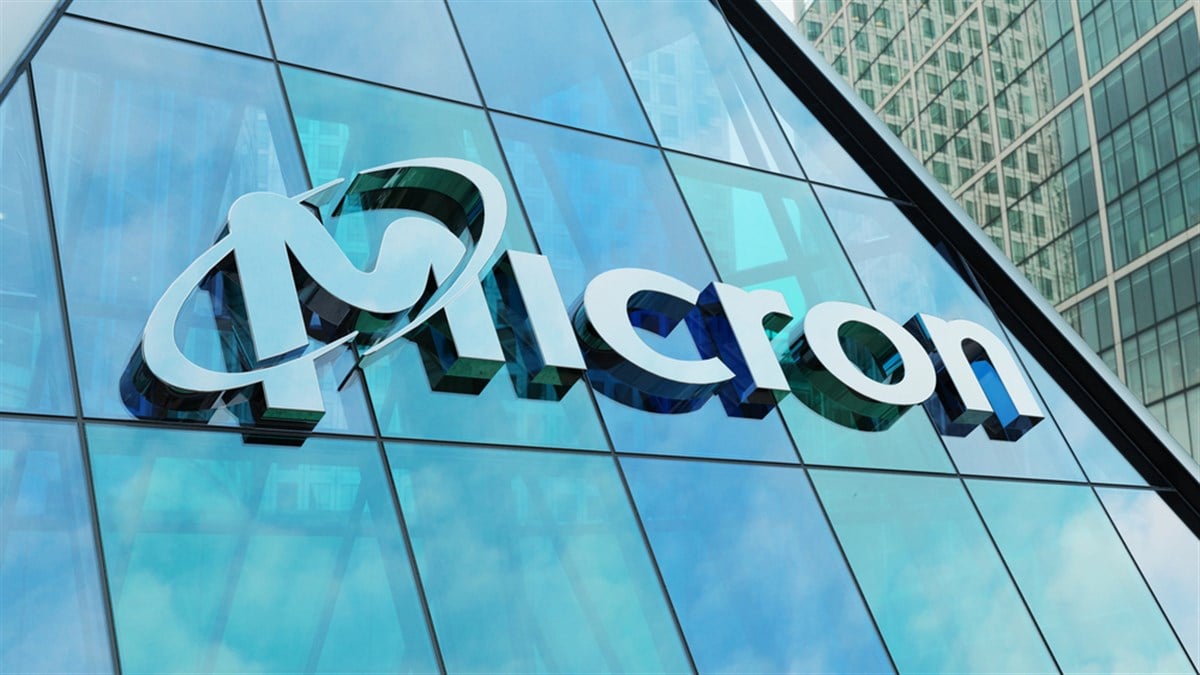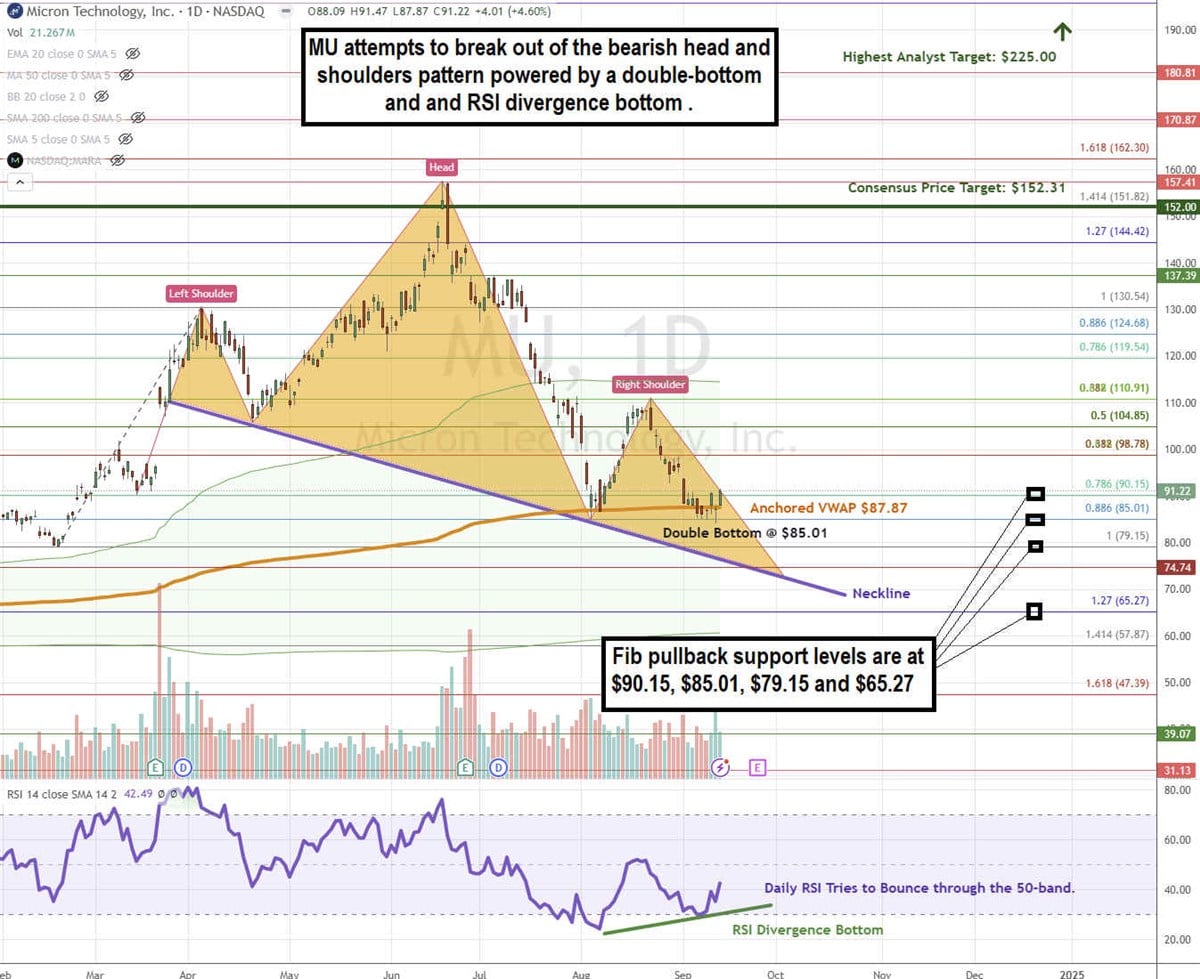
Memory chip maker Micron Technology Inc. (NASDAQ: MU) was the toast of the town when its stock was trading at $157.41 on June 18, 2024. The computer and technology sector leader was expected to be a huge benefactor of the artificial intelligence (AI) boom as it only made sense that its dynamic random access memory (DRAM) and NAND flash chips were a core component of AI infrastructure relying on massive amounts of data storage.
However, sentiment has done a 180-degree reversal a mere 3 months later after a 44% drop in its shares. For the believers, here are 4 reasons to consider buying the dip on MU stock.
1) AI and Data Centers Will Continue to Grow, Driving Memory Chip Demand
AI adoption is driving data center growth, which in turn drives demand for memory and storage solutions. AI applications require 3 components: GPU, storage and networking. AI requires massive amounts of data, and that data needs to be accessible quickly and stored. Not all data is accessed or needed at once.
This is why both legacy hard disk drives (HDD) and NAND flash memory-powered solid-state drives (SSD) will be critical for the AI data cycle. To accommodate the demand for high-bandwidth memory solutions, Micron has ramped up production of its HMB3E chips to AI chip makers like NVIDIA Co. (NASDAQ: NVDA), who are seeing the most demand from… you guessed it, data centers.
2) Micron Technology is the Only U.S. Pure-Play for Memory Chips
On a global basis, Micron is the number 4 maker of flash and DRAM chips behind #3 SK Hynix, #2 Kioxia and #1 Samsung Electronics Co. Ltd. (OTCMKTS: SSNLF). SK acquired Intel Co.’s (NASDAQ: INTC) flash business in 2021. With all the talk of Chinese and foreign tariffs and the need to protect the U.S. semiconductor infrastructure, it pays to be the only U.S. memory chip maker.
While Micron competes with Western Digital Co. (NASDAQ: WDC), they are planning to split its HDD and Flash business into 2 separate publicly traded companies. Furthermore, there is speculation about a potential merger with the flash business and Japanese flash memory maker Kioxia.
3) Micron Acquired 2 Factories in Taiwan to Bolster HBM Production Capacity
Micron Technology announced the acquisition of 2 factories from electronics maker AUO for $254 million. The deal will close by year's end. The acquisitions will not only help add more manufacturing capacity for the company but will also enhance Micron's production capacity for its high-bandwidth memory (HBM) chips.
These chips are specially tailored for AI data centers as they enable faster data processing and transfer at low latency. They are ideal for AI applications like machine learning (ML), computer vision and natural language processing (NLP). Micron's HBM chips are so highly in demand that all of its HBM capacity has been booked until 2025.
4) MU Stock is Forming a Double Bottom at the Daily Anchored VWAP
A double bottom is formed when a stock bounces twice off the same support level. A head and shoulders is a bearish pattern comprised of 3 peaks (left shoulder, head, right shoulder) connected by a neckline that acts as a trigger.

MU formed a daily head and shoulders pattern, setting up a potential breakdown under the neckline at $74.74. However, MU is forming a double bottom off the $85.01 Fibonacci (Fib) support level as it attempts to regain the daily anchored VWAP support at $87.87. A breakout through the $90.15 Fib could trigger the reversal bounce.
This is further evidenced by the divergence bottom formed on the daily relative strength index (RSI) as it attempts to bounce at a higher band, reaching the 42 band. Fib pullback support levels are at $90.15, $85.01, $79.15 and $65.27.
Micron Technology’s average consensus price target is $152.31, and its highest analyst price target sits at $225.00.
Actionable Options Strategies: Bullish investors can buy dips on shallow pullbacks using cash-secured puts at the fib pullback support levels. Bullish options investors can limit maximum downside and profit from potential stock price gains with less capital than owning the stock by implementing a bullish call debit spread.





